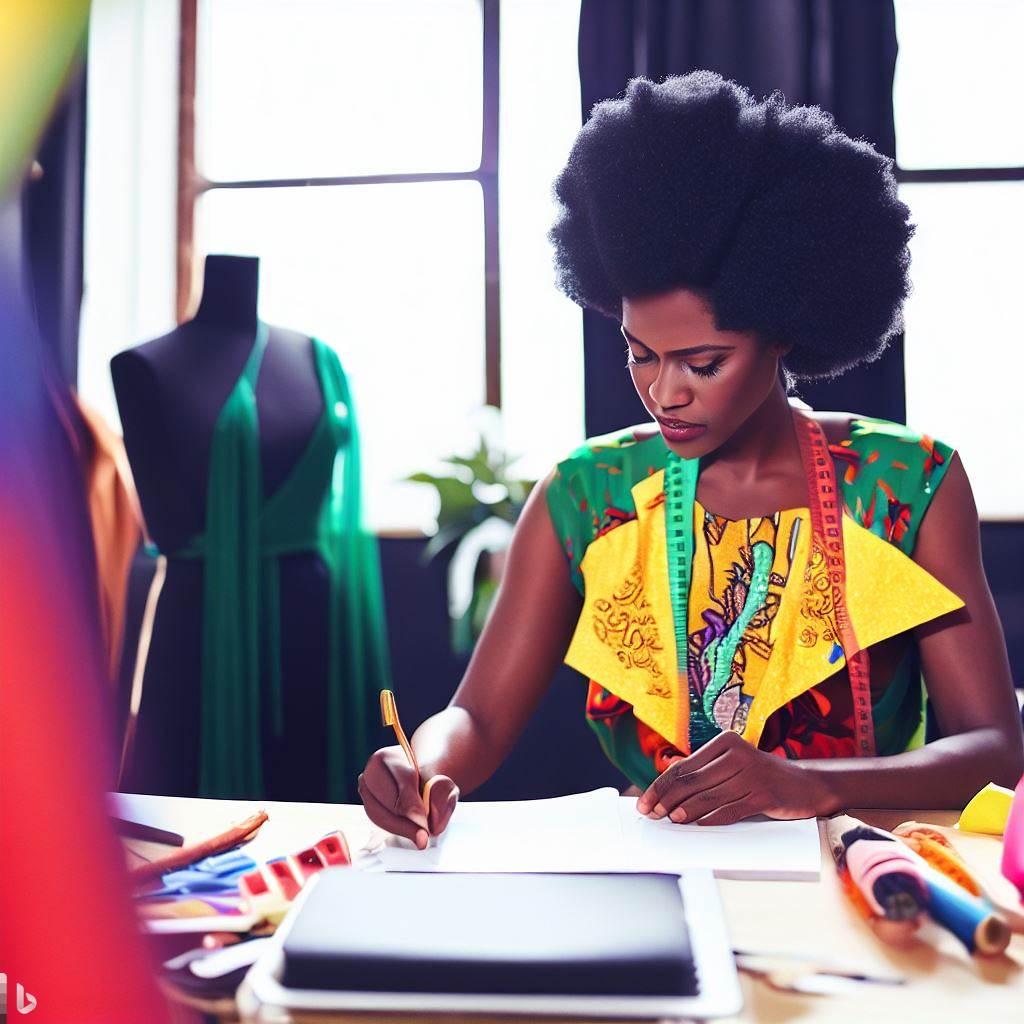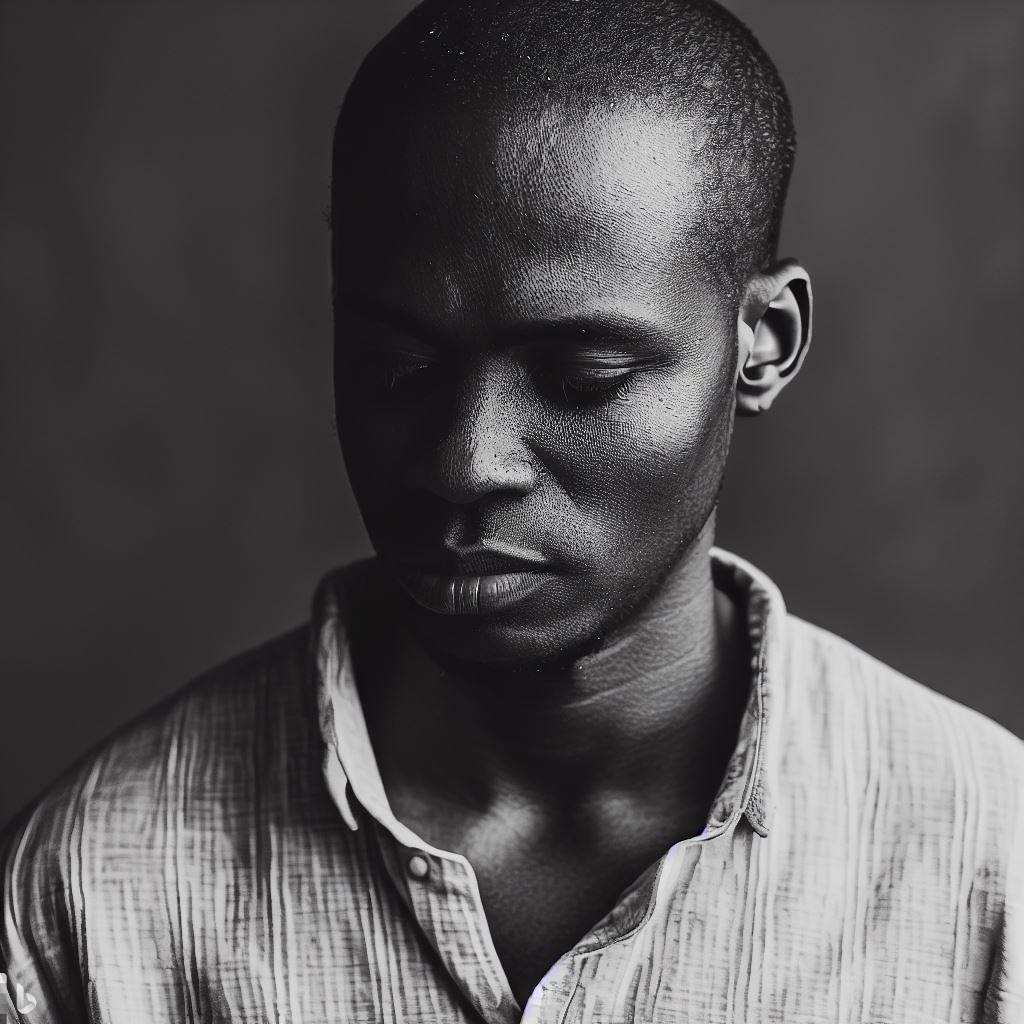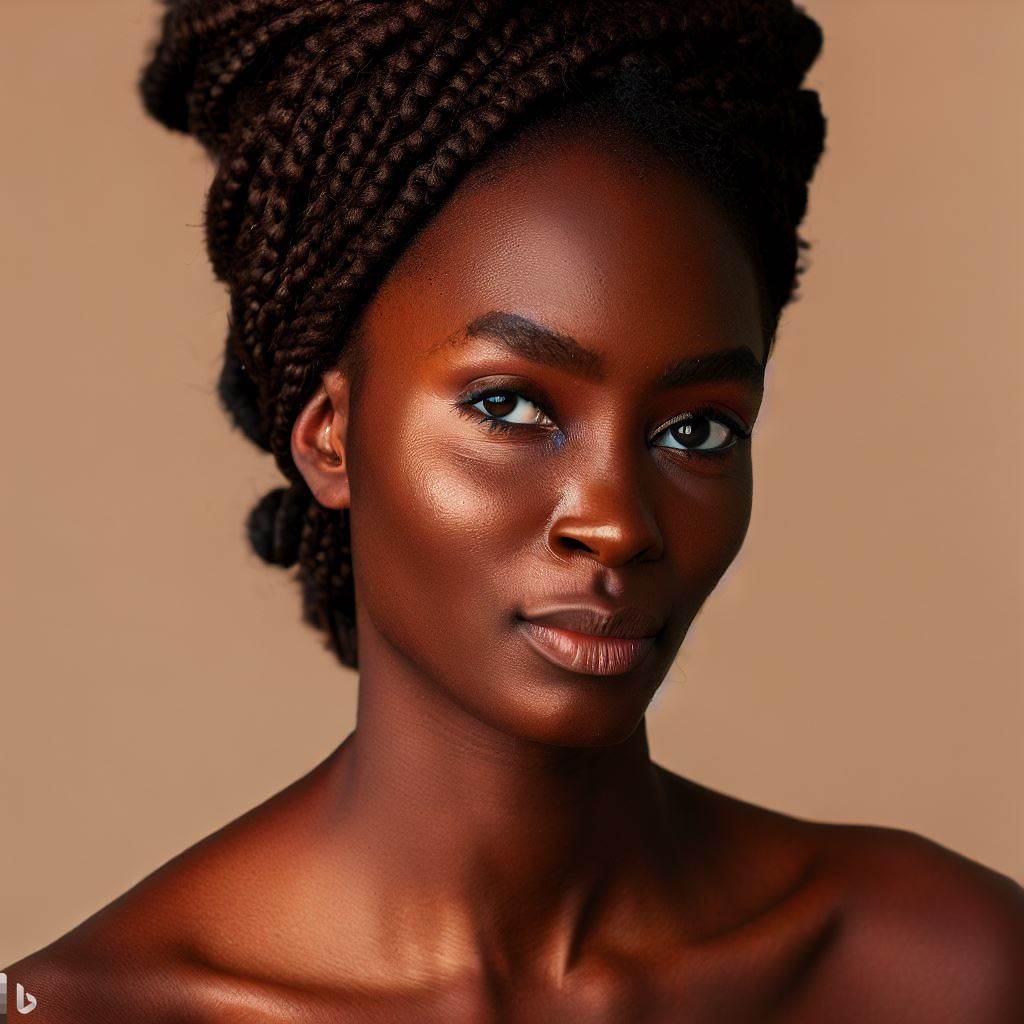Introduction
A. Definition of Nigerian costume design
Nigerian costume design refers to traditional clothing and attire from Nigeria, characterized by vibrant colors and intricate patterns.
B. Brief overview of the fashion industry
The fashion industry encompasses the production, marketing, and consumption of clothing and accessories worldwide.
Historical Background of Nigerian Costume Design
A. Early influences and cultural heritage
Early influences and cultural heritage play a significant role in Nigerian costume design.
The country’s rich history and cultural diversity have shaped the unique styles, fabrics, and patterns found in Nigerian fashion.
- Nigerian costume design finds its roots in the country’s rich cultural heritage.
The historical background of Nigerian costume design reveals the deep cultural roots and influences that shape the country’s fashion industry today. - The diverse tribes and ethnic groups in Nigeria have greatly influenced costume design.
The diverse tribes and ethnic groups in Nigeria have contributed to the wealth of traditional clothing styles and fabrics found in the country. - Indigenous fabrics, vibrant colors, and intricate patterns reflect the cultural diversity of Nigeria.
Indigenous fabrics like adire, akwete, and ankara showcase the craftsmanship and creativity of Nigerian designers.
B. Traditional clothing styles and fabrics
Traditional clothing styles vary across the different regions in Nigeria with each tribe having its distinct attire.
- The Yoruba tribe is known for their elaborate and colorful clothing called “aso-oke.”
- The Igbo tribe’s traditional clothing includes the “isi-agu” for men and “george” wrapper for women.
- Other tribes like the Hausa, Fulani, and Edo also have distinct traditional clothing styles.
- Nigerian costume design often incorporates hand-woven fabrics such as adire, akwete, and ankara.
C. Evolution of Nigerian fashion over the years
- Nigerian costume design has evolved significantly over the years, influenced by globalization and societal changes.
- In the 1960s, Nigerian fashion designers began incorporating Western styles into their designs, creating a fusion of traditional and contemporary elements.
- Nigerian fashion shows and events gained popularity in the 1990s, showcasing the talent of local designers.
- The emergence of Nollywood, Nigeria’s film industry, further propelled Nigerian fashion onto the global stage.
The influence of Nollywood, Nigeria’s film industry, cannot be understated in the evolution of Nigerian fashion.
The global popularity of Nigerian movies exposed the world to the country’s vibrant fashion scene, paving the way for international recognition. - Nigerian designers now blend traditional elements with contemporary fashion, creating unique and globally recognized designs.
Generally, the historical background of Nigerian costume design reflects the country’s rich cultural heritage and diverse ethnic influences.
Traditional clothing styles, fabrics, and patterns showcase the craftsmanship and creativity of Nigerian designers.
The evolution of Nigerian fashion over the years demonstrates the industry’s adaptability to global trends while preserving traditional elements.
Nigerian costume design continues to make an impact in the global fashion industry.
Read: The Impact of Digital Media on Nigerian Music
Nigerian Costume Designers Making Waves in the Fashion Industry
A. Notable Nigerian designers and their contributions
- Duro Olowu: Known for his bold prints and eclectic designs, Olowu has gained international recognition and has dressed top celebrities such as Michelle Obama.
- Deola Sagoe: A pioneer in Nigerian fashion, Sagoe is known for her innovative use of traditional fabrics and her ability to fuse African and Western aesthetics.
- Lanre Da Silva: With her exquisite attention to detail and use of vibrant colors, Da Silva has become a favorite among fashion enthusiasts around the world.
- Mai Atafo: Specializing in menswear, Atafo has redefined the Nigerian fashion industry with his modern and tailored designs.
- Tiffany Amber: Founded by Folake Coker, Tiffany Amber has become a household name in Nigeria and beyond, with its elegant and timeless designs.
B. Global recognition and impact on the fashion world
- The Nigerian fashion industry has experienced a surge in global recognition, thanks to the exceptional talent and creativity of Nigerian costume designers.
- These designers have put Nigeria on the fashion map, showcasing the country’s rich cultural heritage and unique design aesthetics.
- By incorporating traditional Nigerian elements into their designs, these designers have not only preserved the country’s cultural identity but have also introduced it to a wider audience.
- Their work has influenced fashion trends across the globe, with African-inspired prints, fabrics, and silhouettes becoming increasingly popular.
C. Collaboration with international fashion brands
- Nigerian costume designers have not only made a mark in the local and global fashion scene but have also attracted the attention of renowned international fashion brands.
- Through collaboration and partnerships, these designers have been able to showcase their talent on a larger platform.
- Labels like Burberry, Louis Vuitton, and Gucci have recognized the unique perspectives Nigerian designers bring to the industry and have collaborated with them to create limited-edition collections or showcase their work on international runways.
- These collaborations have not only given Nigerian designers more exposure but have also helped to challenge stereotypes and reshape the perception of African fashion.
- By working with international brands, Nigerian designers have bridged the gap between African and Western fashion, fostering cultural exchange and celebrating diversity in the industry.
In summary, Nigerian costume designers are making waves in the fashion industry through their exceptional talent, cultural representation, and collaborations with international brands.
Their contributions have not only elevated the status of Nigerian fashion but have also had a significant impact on the global fashion industry as a whole.
Read: Impact of Modern Tech on Cinematography in Nigeria
The Unique Elements of Nigerian Costume Design
A. Vibrant colors and patterns
- Nigerian costume design is known for its vibrant colors and eye-catching patterns. The use of bold and lively hues reflects the rich cultural heritage of the country.
- These vibrant colors often include shades of red, yellow, green, blue, and orange, which are both symbolic and visually appealing.
- The patterns used in Nigerian costume design are equally as important. They are often intricate, geometric, and inspired by nature.
- These patterns represent various aspects of Nigerian culture, such as tribal affiliations, social status, and even storytelling.
- The combination of vibrant colors and unique patterns creates visually striking garments that are easily recognizable in the fashion industry.
B. Use of traditional Nigerian fabrics
Nigerian costume design embraces the use of traditional fabrics that have been passed down through generations.
These fabrics hold cultural significance and play a vital role in shaping Nigerian identity. Some of the most popular fabrics include Ankara, Adire, Aso Oke, and George fabric.
- Ankara fabric, also known as African print, is a vibrant and versatile fabric that is widely used in Nigerian costume design.
It comes in various patterns and colors, making it a preferred choice for both casual and formal wear. - Adire, on the other hand, is a tie-dye fabric that showcases intricate patterns created through resist
dyeing techniques. - Aso Oke, a handwoven fabric, is often used for ceremonial outfits and signifies prestige and wealth.
- Lastly, the George fabric, typically made of silk, is highly valued and used for special occasions like weddings.
C. Incorporation of indigenous techniques and craftsmanship
Nigerian costume design incorporates indigenous techniques and craftsmanship to create unique and bespoke garments.
- Artisans and craftsmen play a crucial role in the production process, employing age-old skills and traditional methods.
- Embroidery, beadwork, and hand-painted techniques are some of the artisanal skills used in Nigerian costume design.
- These techniques add intricate details and embellishments to the garments, making them stand out.
- Additionally, hand weaving and fabric printing are also commonly practiced, showcasing the talent and craftsmanship of Nigerian artisans.
- The incorporation of indigenous techniques not only adds value to the garments but also preserves traditional craftsmanship.
- This aspect of Nigerian costume design allows for the continuation of cultural practices and provides employment opportunities for local artisans.
In short, Nigerian costume design stands out in the fashion industry due to its unique elements.
The vibrant colors and patterns, use of traditional fabrics, and incorporation of indigenous techniques and craftsmanship all contribute to the distinctiveness of Nigerian fashion.
These elements reflect the rich cultural heritage of Nigeria and have made Nigerian costume design a global phenomenon.
Whether it’s on the runway or in everyday wear, Nigerian fashion continues to make a powerful impact in the world of style and design.
Read: Inspirational Nigerian Costume Designers to Watch in 2023

Nigerian Costume Design’s Influence on Global Fashion Trends
Nigerian fashion on international runways
- Nigerian costume design has gained recognition on international runways.
- Designers like Deola Sagoe and Lisa Folawiyo have showcased their collections globally.
- Nigerian prints, vibrant colors, and unique silhouettes have captivated the fashion industry.
- African Fashion Week and Lagos Fashion Week are platforms that promote Nigerian fashion globally.
- International fashion weeks like New York and Paris have featured Nigerian designers and their creations.
Celebrity endorsements and red carpet appearances
- Numerous celebrities have embraced Nigerian costume design for red carpet events.
- Personalities like Beyoncé, Rihanna, and Lupita Nyong’o have worn Nigerian-inspired outfits.
- These endorsements have increased the visibility and acceptance of Nigerian fashion on a global scale.
- Red carpet appearances serve as a platform to showcase the creativity and craftsmanship of Nigerian designers.
- Celebrities wearing Nigerian costumes generate significant media attention and influence fashion trends.
Influence on mainstream fashion brands
- Nigerian costume design’s impact can be seen in the collections of mainstream fashion brands.
- Nigerian patterns, textiles, and cultural elements are being incorporated into global fashion brands’ designs.
- Luxury brands such as Gucci and Louis Vuitton have acknowledged and featured Nigerian-inspired pieces.
- Collaboration between Nigerian designers and international brands has further promoted Nigerian fashion.
- The infusion of Nigerian costume design in mainstream fashion has widened its global reach and appeal.
Basically, Nigerian costume design has significantly influenced global fashion trends.
Read: Art Movements in Nigeria: A Comprehensive Review
Economic Impact of Nigerian Costume Design in the Fashion Industry
African fashion has gained significant recognition in recent years, and Nigerian costume design has played a crucial role in shaping the industry.
Not only does it contribute to the country’s cultural heritage, but it also has a substantial economic impact.
Job creation and promotion of local artisans
- Nigerian costume design provides employment opportunities for countless artisans, weavers, tailors, and craftsmen.
- These talented individuals bring their unique skills and creativity to the fashion industry, thereby creating numerous jobs.
- By promoting local artisans, Nigerian costume design helps preserve traditional techniques and craftsmanship that have been passed down through generations.
- It also empowers these artisans, enabling them to sustain their livelihoods and support their families.
- Furthermore, the work of these artisans contributes to the growth of the fashion industry as a whole, making Nigeria a hub for skilled craftsmanship and artistic excellence.
Boosting Nigeria’s textile and garment industry
- Nigerian costume design has played a pivotal role in reviving and promoting the country’s textile and garment industry.
- Traditionally, Nigeria is renowned for its vibrant and diverse textile heritage, with fabrics such as adire, aso-oke, and ankara gaining global recognition.
- These fabrics are often incorporated into contemporary designs, creating a fusion of traditional and modern aesthetics.
- The demand for Nigerian costume design has led to increased production and investments in the textile and garment industry.
- This, in turn, has resulted in the establishment of more textile mills, fabric printing factories, and garment manufacturing units.
- By boosting the textile and garment industry, Nigerian costume design contributes to job creation, revenue generation, and the overall economic development of the country.
Contribution to the country’s GDP
- The economic impact of Nigerian costume design can be observed through its contribution to Nigeria’s Gross Domestic Product (GDP).
- The fashion industry, including costume design, has become a significant component of Nigeria’s economy.
- The continuous growth and innovation in this sector have led to increased exports of Nigerian fashion products.
- As Nigerian designers showcase their creations in international fashion shows and collaborate with renowned fashion houses, the demand for Nigerian costume design has soared globally.
- This surge in export has a direct positive effect on Nigeria’s GDP, further strengthening the country’s economic position.
- The revenue earned from the fashion industry, particularly through Nigerian costume design, also helps to reduce the country’s dependence on oil revenue and diversify its economic resources.
In general, Nigerian costume design not only serves as a representation of the country’s rich cultural heritage but also significantly impacts its economy.
Through job creation, promotion of local artisans, boosting the textile and garment industry, and contributing to the country’s GDP, Nigerian costume design plays a vital role in Nigeria’s economic growth and development.
Read: Nigerian Musicians: Achieving Success Abroad
Challenges and Opportunities for Nigerian Costume Designers
Lack of infrastructure and support
- The Nigerian costume design industry faces a significant challenge due to the lack of proper infrastructure.
- Costume designers often struggle to find suitable production facilities and equipment for their work.
- There is a shortage of specialized training institutes and workshops to cultivate and enhance the skills of costume designers.
- The lack of financial support and funding opportunities restricts the growth and development of Nigerian costume designers.
- This challenge hinders the ability of designers to create unique and innovative designs and showcase their talent on a global scale.
Efforts to overcome obstacles and foster growth
- Nigerian costume designers are resilient and have been actively pursuing various strategies to overcome the challenges they face.
- They have organized themselves into associations to collectively advocate for better infrastructure and support.
- Designers are actively seeking partnerships and collaborations with local and international fashion institutions to enhance their skills.
- Efforts are being made to establish mentorship programs and talent development initiatives to nurture the next generation of costume designers.
- Networking events and fashion showcases are organized to provide platforms for costume designers to gain exposure and recognition.
Increasing international collaborations and partnerships
- Nigerian costume designers have recognized the importance of collaboration and are actively seeking partnerships with international designers and brands.
- These collaborations allow Nigerian designers to showcase their work on international runways and gain global recognition.
- International collaborations also provide opportunities for knowledge exchange and exposure to new techniques and trends in costume design.
- Partnerships with international retailers and e-commerce platforms enable Nigerian designers to reach a broader customer base.
- The increasing presence of Nigerian costume designers in international fashion events and publications highlights the growth and potential of the industry.
All in all, while Nigerian costume designers face challenges related to infrastructure, support, and funding, they are actively working to overcome these obstacles.
By forming associations, seeking partnerships, and participating in international collaborations, these designers are fostering growth and development in the industry.
With increasing recognition and exposure on global platforms, Nigerian costume designers are making their mark in the fashion industry.
Read: Successful Music Collaborations in Nigeria’s History
Explore Further: Animation Director Salary Guide: Nigeria Edition
Conclusion
Recap of the impact of Nigerian costume design
Nigerian costume design has made a significant impact in the fashion industry, with its vibrant colors and unique patterns.
Potential for future growth and recognition in the fashion industry
There is a great potential for future growth and recognition of Nigerian costume design in the fashion industry.
Final thoughts on the significance of Nigerian costume design
Lastly Nigerian costume design holds great significance in representing the rich cultural heritage and diversity of Nigeria in the world of fashion.




